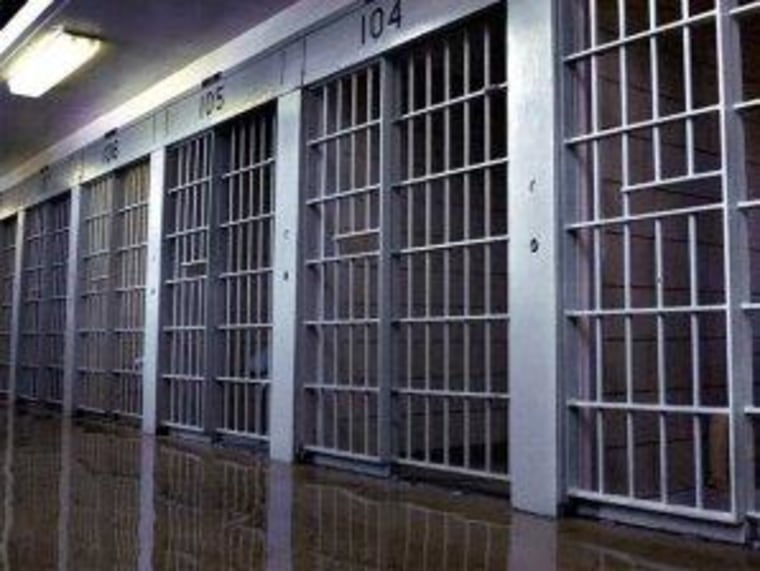A few years ago, Sen. Jim Webb (D-Va.) quietly helped get the ball rolling on an issue that many Democrats have generally been reluctant to touch: prison reform.
In March 2009, Webb said on the Senate floor, "Let's start with a premise that I don't think a lot of Americans are aware of. We have five percent of the world's population; we have 25 percent of the world's known prison population. There are only two possibilities here: either we have the most evil people on earth living in the United States, or we are doing something dramatically wrong in terms of how we approach the issue of criminal justice."
The fear was that the right would immediately launch tired and predictable attacks about Democrats being "soft" on crime and/or "coddling" criminals, using demagoguery to cut the discussion off at the knees, but that never really happened. Other national priorities took precedence, but Webb initiated a discussion that most serious people, regardless of ideology, considered worth having.
A few years later, we appear to have reached the point at which prison reform is a bipartisan issue. Indeed, Dylan Matthews noted yesterday that it's the right that's "leading the charge to reduce the U.S. prison population."
According to John Hopkins's David Dagan and Steve Teles, writing in the Washington Monthly, the change is not primarily due to economic constraints. The change started in the early 2000s, with major conservative-led reforms passing in Texas in 2007, when times were flush, and states weren't facing draconian budget cuts of the kind they've been forced to implement recently.Nor is this a case of corporate cronyism. The American Legislative Exchange Council (ALEC), which drafts model legislation for conservative state legislatures and is a newfound supporter of prison reform, does not receive support from any prison privatization companies, and has renounced its previous support for privatization measures.Instead, the change has come about due to an alliance between libertarians, who are as skeptical of the prison system as they are of all uses of state power, and religious conservatives.
Remember Chuck Colson? He helped make this an issue for social conservatives, but we've also seen prison reform gain traction throughout the right, at the state and federal level.
The Dagan/Teles piece is worth checking out. Given the enormous ideological gap between the Democratic and Republican parties, it's become exceedingly difficult to find important issues that can garner bipartisan support, but if we're making a list, reforming the criminal justice system deserves to be on it. There's a real opportunity here for much-needed change.
